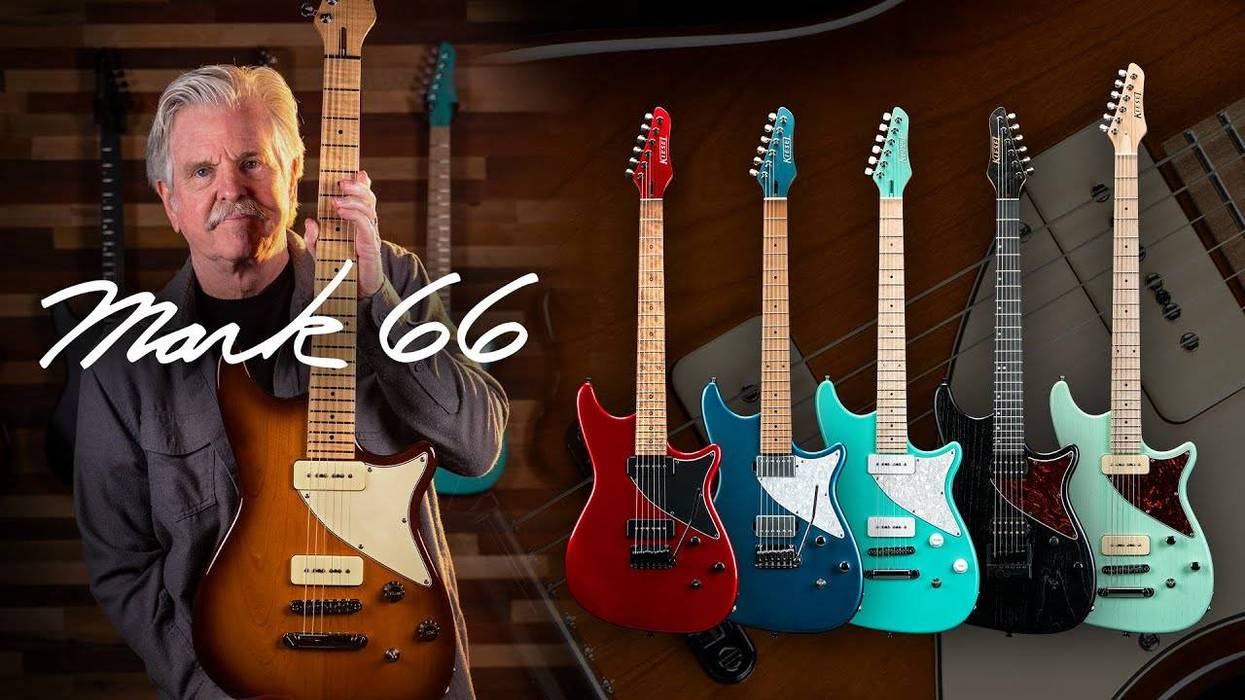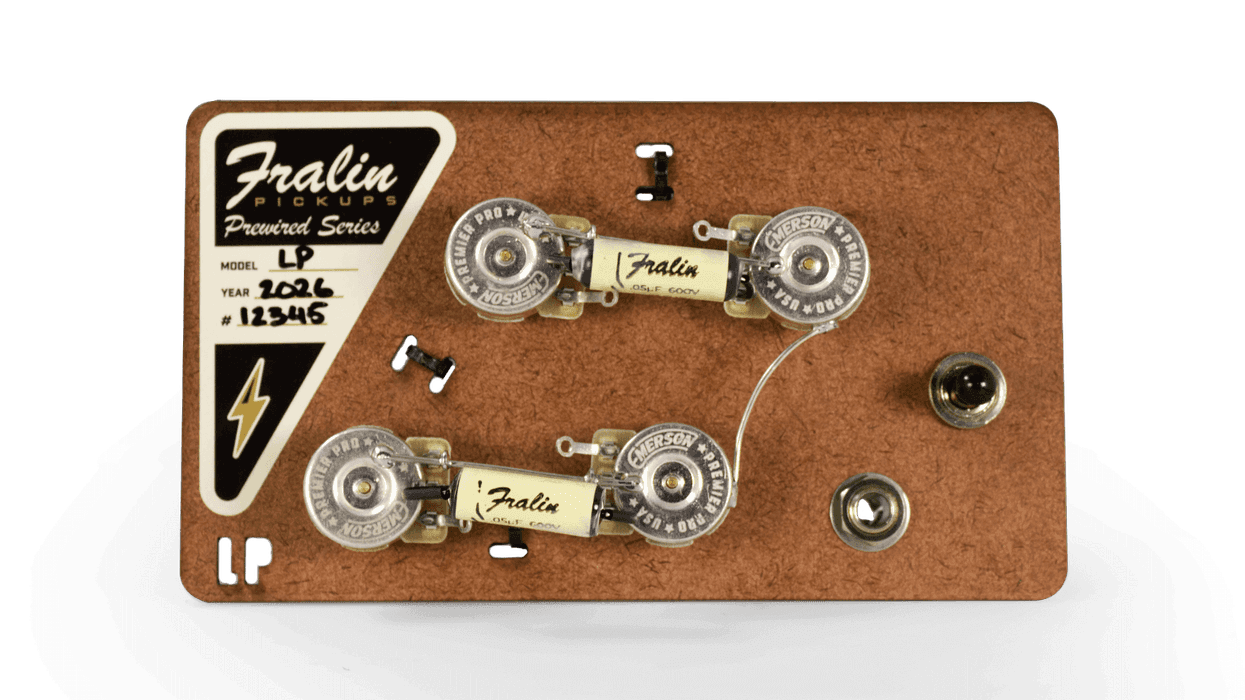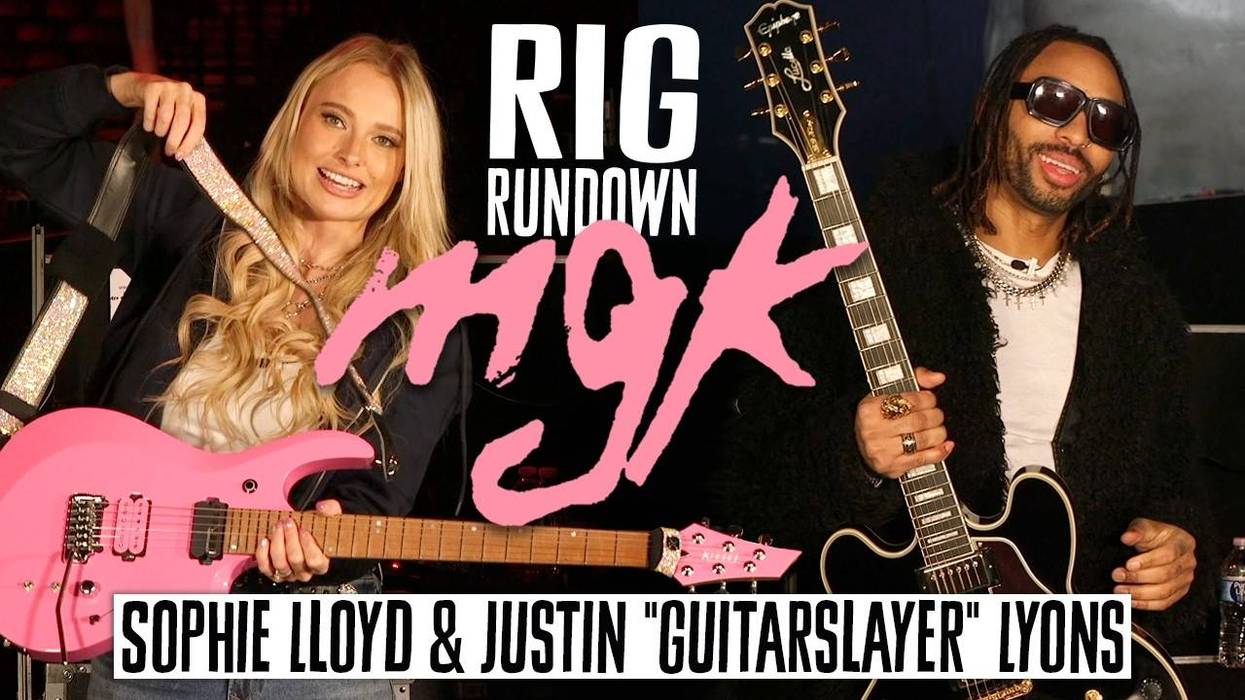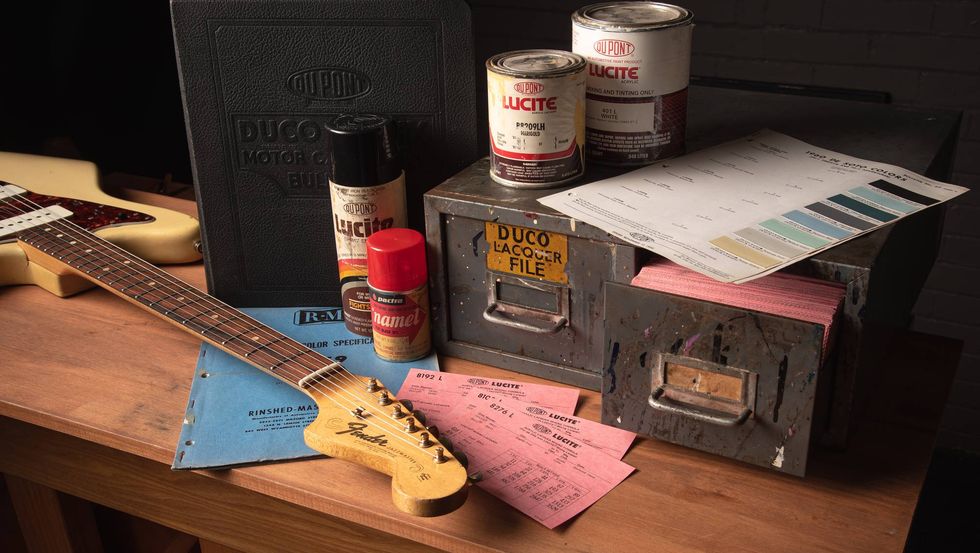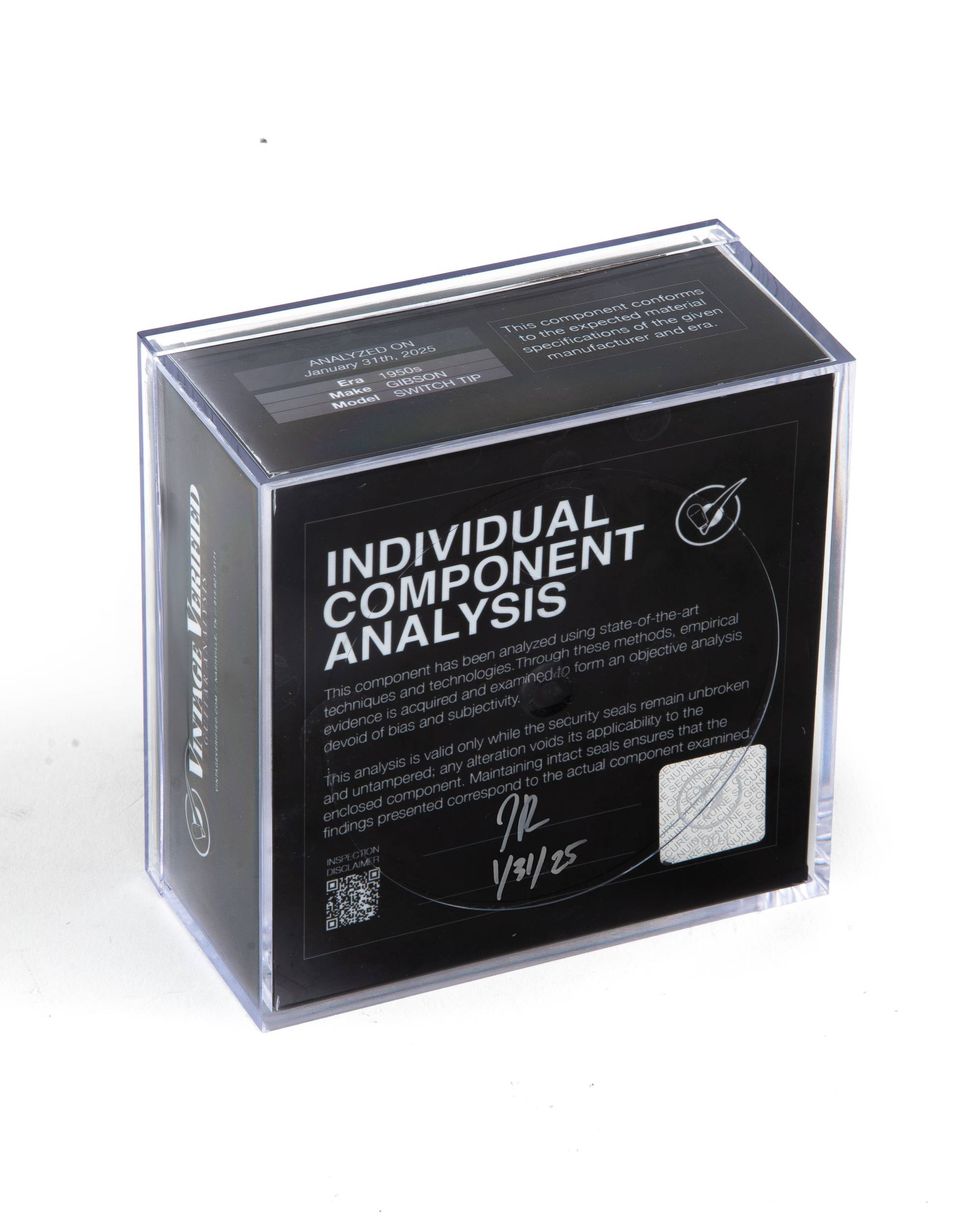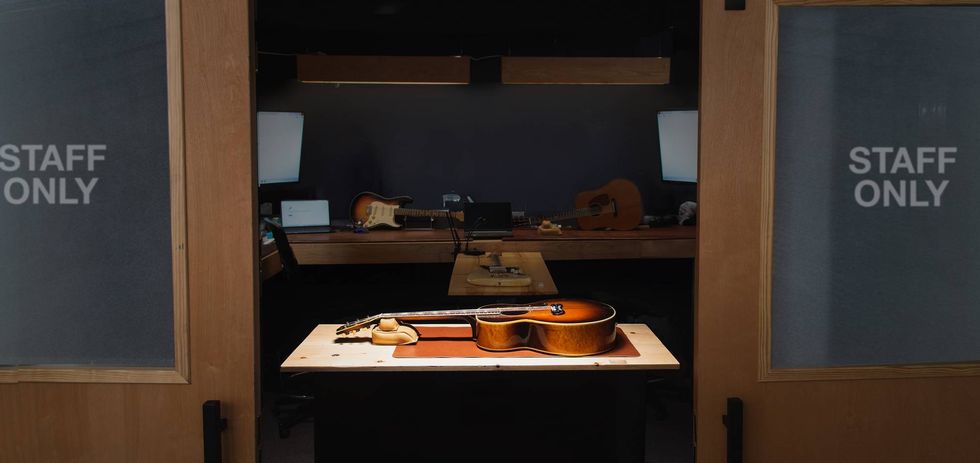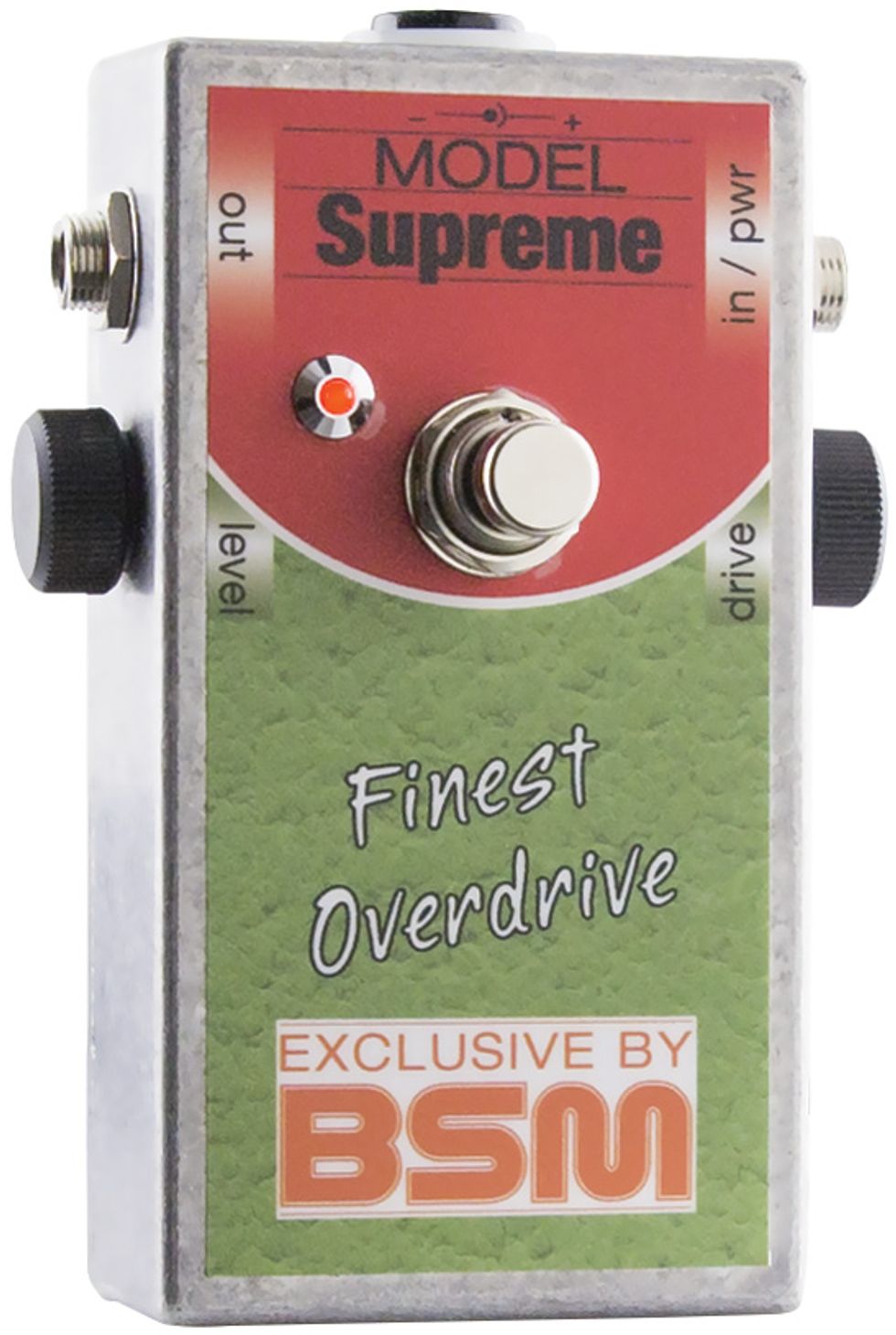
Germany’s BSM is the brainchild of Bernd Meiser, a fellow you might call obsessive about treble boosters. He’s made dozens of variations—most from an enraptured perspective on Richie Blackmore’s killer Deep Purple tones. Meiser’s pedals are no-frills and a bit spendy. But as his sizable cult can attest, they are the real deal if you’re chasing the sweet-to-the-ear singing leads of Blackmore, Gallagher, or Iommi.
His Supreme overdrive plies the same waters, but instead of a variation on Blackmore’s Hornby-Skewes booster, the Supreme emulates the overdrive tones Blackmore extracted form his modified Aiwa reel-to-reel deck. Meiser has toyed with this concept before. But the Supreme is ostensibly a medium-gain version that retains the modified Aiwa’s signature cutting tones.
The results are still overtly and satisfyingly hot. If you use British-style amps and like lead tones that walk the fences between sweet, stinging, and white-hot, the Supreme is a thing of wonder. It works less well with classically Fender-ish amps. (My silverface Bassman, which can be coaxed into Marshall-y zones, was an exception, but Twin Reverb users should beware.) The “medium-gain” virtues of the pedal’s design are heard best when playing chugging chords—a task at which the Supreme excels.
Test gear: Fender Jazzmaster, Fender Jaguar, Fender Telecaster Deluxe, Orange OR50, silverface Fender Bassman, blackface Fender Tremolux, Fender Vibro Champ
Ratings
Pros:
Growling, stinging overdrive tones.
Cons:
Can sound less sweet with Fender-style amp circuits. Expensive.
Street:
$285
BSM Supreme
treblebooster.net
Tones:
Ease of Use:
Build/Design:
Value:








